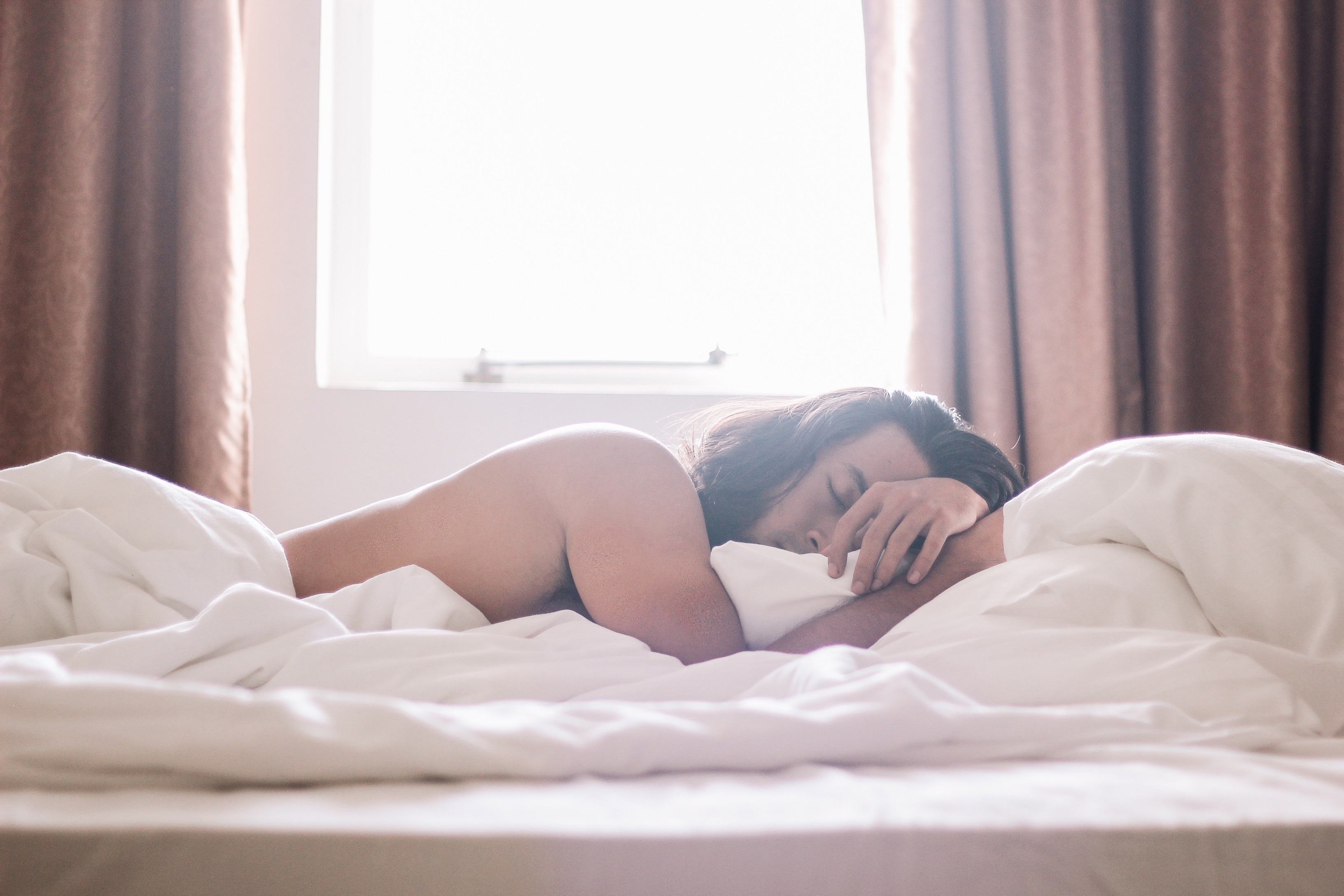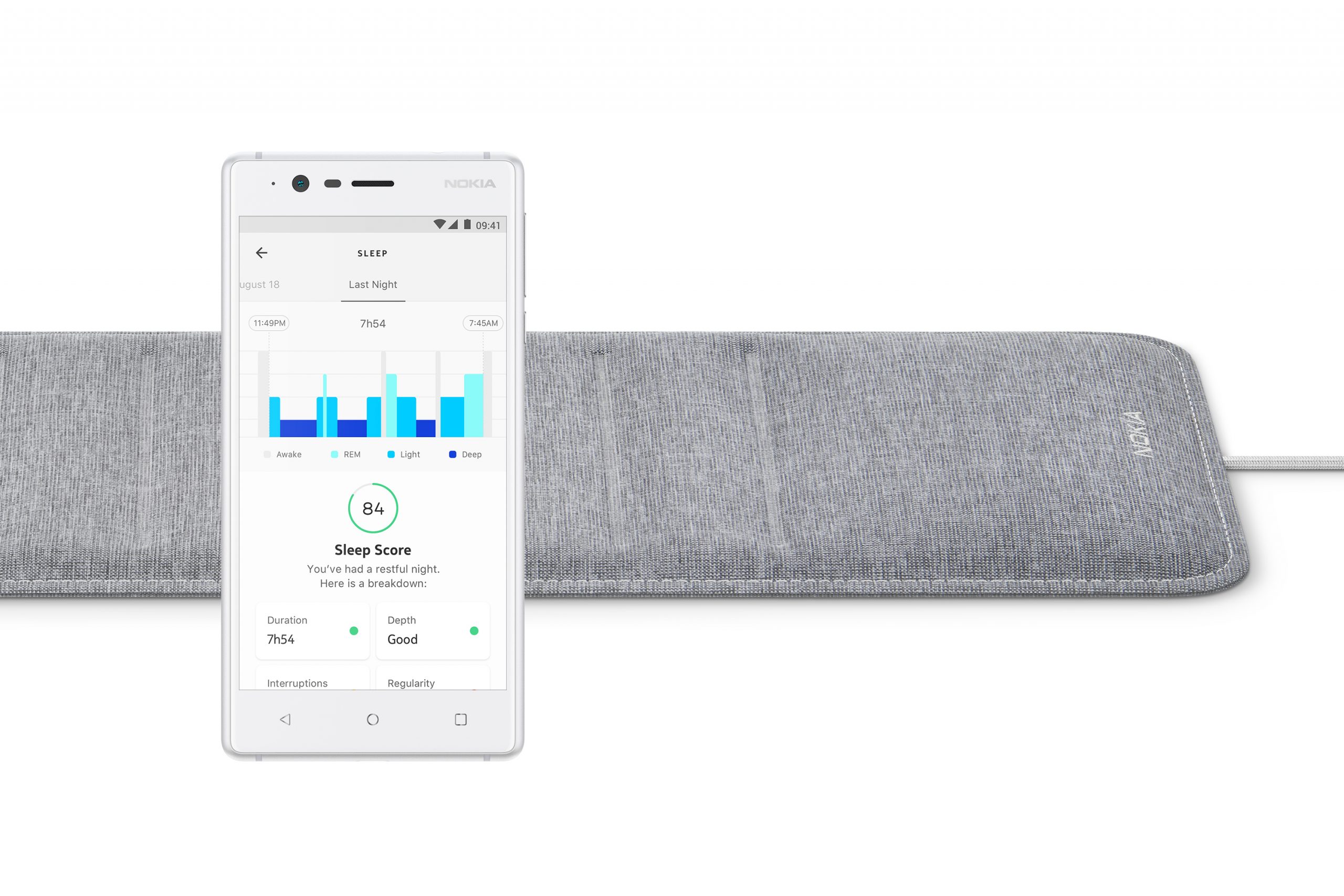
Can you “catch up” on sleep? Can certain foods help get you to sleep faster? Find out what a board-certified sleep doctor has to say about getting those precious ZZZs.
Dr. W. Chris Winter is one of the minds behind the Sleep Smarter program, our 8-week coaching program in the Health Mate app that guides you to a more consistent sleep schedule. As a leading sleep expert who has worked in the field for 25 years, Dr. Winter heads Charlottesville Neurology and Sleep Medicine and works with elite athletes around the world to work on their sleep routines.
Recently, the good doc answered questions from our fans. Here are the highlights of what they asked, and what he answered.
Q & A with Dr. Chris Winter, a.k.a. the “Sleep Whisperer”
Q: How do you get into a good sleep rhythm if you’re doing shift work that sometimes has you working nights? Is there a trick for getting your circadian rhythm to adjust?
This is a tough one, because sleep-schedule disruption is a serious problem. Shift work in particular is very hard on our health. If you are a shift worker, controlling your schedule is key. By manipulating light, temperature, exercise timing, and diet, your adaptation to the new shift can be improved. Also, there are medications that are FDA-approved for shift-work disorder. My book has an entire chapter on it. Good luck!
Q: I have sleep apnea and usually use a BiPAP. However, I sometimes fall asleep without it and hate to travel with it. I asked about the potential dangers of failing to use it every night and was told that it wouldn’t kill me. But I later read that sleep apnea was ruled as a contributing factor in Carrie Fisher’s death. I’m sure each patient is different, but seriously, how dangerous is it to go an occasional night without using the BiPAP machine?
That answer has everything to do with the severity of your sleep apnea, your other medical conditions, and medications/alcohol you have ingested. To be safe and healthy, wear it. I know it’s a huge pain, but so are my glasses…some things you just have to do. I feel your pain. I wore a CPAP for a month to see what my patients experience. It’s not easy!
Q: So, if we’re not getting enough sleep, should we then sleep more for a few days to “catch up,” or are we messing ourselves up even more?
Such a good question, as the topic of sleep debt is a hot one in sleep medicine. I would say that if there is an event that prevented you from sleeping, it is okay to sleep in or nap to make it up. If, however, the debt is because you couldn’t sleep, sleep the next day will mess things up. Great question!
Q: What do you think about using cell phones before bed? I’m usually on 30 minutes before bedtime.
I’m going full disclosure here: I’m in bed right now on a cell phone. Getting off your phone well before bedtime can improve not only the time it takes to fall asleep, but also the duration and quality of your sleep. You need a bed for your cellphone, and the bed should be somewhere other than your bedroom. So, when someone asks you what you want for your birthday…
Q: I have had bad sinus problems from the day I was born—9 out of 10 times I sleep with my mouth open. I get maybe 5–6 hours of sleep on a good night. Will a sleep apnea machine fix this?
It can, but you might want to consult a good ENT first!
Q: How do you train your body to not “require” a large amount of sleep per night? I currently need at least 10 hours of sleep per night to wake up feeling energized and refreshed.
All you can do is train your body to function better with less sleep. Unfortunately, you cannot train yourself to need less sleep any more than you can train yourself to need less food! There are genes that let some people handle sleep deprivation better than others.
Q: I read somewhere that the older you get, the less sleep you need to feel rested. Do you agree with that? Is this something we can or should train ourselves to do as we get older?
There is a body of research that does say sleep need is diminished as we age. I do think that it should guide us in how much sleep we seek. We probably do not need as much in our 70s as we did in our 30s.
Q: Is everyone different when it comes to the amount of time needed to achieve deep sleep? Do you recommend any foods to help you sleep?
Yes. We are different intrinsically, and the time required to enter deep sleep is dependent upon how much you have been sleeping and your activity levels, as well as the timing of your sleep. Medications and alcohol can affect this as well too.
To answer your second: think about what you eat at Thanksgiving, and steer towards carbs. Hummus, nuts, game meats, dairy, salmon, milk, and chamomile/passion flower teas can be very helpful. Bon appetit!
Q: What’s the best tip to get a good night’s sleep?
I’m going to say darkness. Make your room really dark.
Q: I keep falling asleep on my arms, and therefore they get numb. Unfortunately, sometimes they get tingly during the day too. Please help!
Sorry to hear that. You might want to consider a softer mattress or something with a memory-foam top layer. Another option: Train yourself to sleep on your back. If tingling persists during the day, talk to your primary-care doctor, as this could be a more serious neurological sign of cervical nerve impingement, carpal tunnel, or another condition.
Q: Does playing white noise keep your brain active, or does it promote restful sleep?
I think silence is best, but if you are trying to drown out noise (e.g., trying to sleep in Vegas), a noise machine can be helpful.
Q: Does night mode on our smartphones make much of a difference as we are checking out Facebook in bed?
It does…as do blue [light] blocker glasses.
Q: Is it better to be awakened during light sleep or during deep sleep?
No question…light sleep!
Want to learn more about the quality of your sleep? Discover Nokia Sleep, our Sleep Sensing and Home Automation Pad.
For more tips on sleep, you can find Dr. Winter on Twitter at @SportSleepDoc. His debut book, The Sleep Solution: Why Your Sleep is Broken and How to Fix It, is out now.



